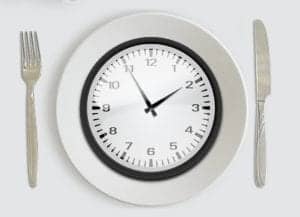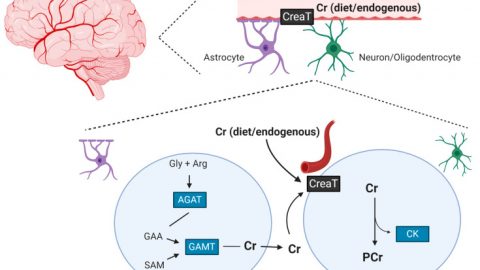2025 Update: Below are studies that looked at IF compared to typical diet eating patterns focused on weight loss, so reduced calorie intakes. There’s often been claims that time restricted eating (TRE) without calorie reductions are a beneficial to metabolic health (e.g., improved insulin sensitivity, glucose, cholesterol levels, as well as reductions in body fat), but is it true? A recent study examined that, and found no benefits in those metrics. Prior TRE studies have been contradictory, some finding benefits and some not. The reason likely being, those that found benefits didn’t control for calories and or macros, which is a confounding variable to the results. This latest study utilized randomized crossover design involving thirty one overweight women following two TRE protocols. Most important to the results, the macros were nearly identical and were isocaloric. The results were; no statistically significant differences in insulin sensitivity, inflammatory markers, blood sugar, or blood lipids between them. Would there be a difference if the study ran longer and or used normal weight healthier subjects? Maybe, but unlikely is my guess. For those who want to dive into the details, see: “Intended isocaloric time-restricted eating shifts circadian clocks but does not improve cardiometabolic health in women with overweight.“
IF And Weight Loss
There’s now been a number of well-controlled studies comparing intermittent fasting (IF) to a more traditional approach to weight loss. To date, they don’t find IF superior to more traditional approaches. A well controlled iso-caloric feeding study published in 2024 “Effect of Isocaloric, Time-Restricted Eating on Body Weight in Adults With Obesity: A Randomized Controlled Trial” came to similar findings as the prior studies below, if matched for calories and macros, no statistically significant differences are found between groups for weight at 12 weeks. Secondary outcomes of this study examined were “fasting glucose, homeostatic model assessment for insulin resistance (HOMA-IR), glucose area under the curve by oral glucose tolerance test, and glycated albumin.” People can read the study linked for the details if interested, but their summary was:
“In the setting of isocaloric eating, Time-restricted eating (TRE) did not decrease weight or improve glucose homeostasis relative to a usual eating pattern, suggesting that any effects of TRE on weight in prior studies may be due to reductions in caloric intake.”
Another published in 2022 the J. Of Clinical Nutrition comparing an iso-caloric Mediterranean Diet, found no differences in body weight, BMI, arm circumferences and waist circumferences between groups. What all of the studies have in common is they fail to find major differences between standard approaches to weight loss vs IF. Another recent study in published in JAMA, and below is the essential details, along with earlier studies, came to the same conclusions. A study just published via Journal of Hepatology comparing a time restricted approach vs typical calorie restricted approach, as well as various metabolic parameters – liver stiffness, glucose homeostasis, sleep quality – found no statistically significant differences between groups. The study was a 16 week intervention with 337 participants randomized. Both groups, as expected, demonstrated similar reductions in body weight, waist circumference, and body fat mass.
My Advice:
I’m not against IF per se, but those making claims there’s a metabolically unique effect from IF vs traditional approaches when calories are matched, ignore the the actual data. What IF does for some is simply leads them to consume less calories, and that’s it. No magic metabolic macro manipulations is taking place. See also my recent discussion on Calories In/Calories Out debate. But, if some find following an IF/TRE schedule helps them achieve their goals of weight loss, and that’s what matters all things being equal. It should also be noted the studies ran for different lengths of time, used different IF schedules, and different groups of people, different energy intakes, all fail to find benefits of isocaloric and better yet, matched for macros between IF and other approaches.
If you find IF works for you and helps get the fat off, then no harm done and carry on, just don’t buy into the clearly debunked claims it’s anything but good old calorie reduction packed differently and my advice/conclusions below this latest study remain unchanged:
Calorie Restriction with or without Time-Restricted Eating in Weight Loss
N Engl J Med 2022; 386:1495-1504
Abstract
Background
The long-term efficacy and safety of time-restricted eating for weight loss are not clear.
Methods
We randomly assigned 139 patients with obesity to time-restricted eating (eating only between 8:00 a.m. and 4:00 p.m.) with calorie restriction or daily calorie restriction alone. For 12 months, all the participants were instructed to follow a calorie-restricted diet that consisted of 1500 to 1800 kcal per day for men and 1200 to 1500 kcal per day for women. The primary outcome was the difference between the two groups in the change from baseline in body weight; secondary outcomes included changes in waist circumference, body-mass index (BMI), amount of body fat, and measures of metabolic risk factors.
Results
Of the total 139 participants who underwent randomization, 118 (84.9%) completed the 12-month follow-up visit. The mean weight loss from baseline at 12 months was −8.0 kg (95% confidence interval [CI], −9.6 to −6.4) in the time-restriction group and −6.3 kg (95% CI, −7.8 to −4.7) in the daily-calorie-restriction group. Changes in weight were not significantly different in the two groups at the 12-month assessment (net difference, −1.8 kg; 95% CI, −4.0 to 0.4; P=0.11). Results of analyses of waist circumferences, BMI, body fat, body lean mass, blood pressure, and metabolic risk factors were consistent with the results of the primary outcome. In addition, there were no substantial differences between the groups in the numbers of adverse events.
Conclusions
Among patients with obesity, a regimen of time-restricted eating was not more beneficial with regard to reduction in body weight, body fat, or metabolic risk factors than daily calorie restriction
Previous studies and Comments:
A study the prestigious JAMA did not find benefits of IF compared to the more traditional approach. (1)
Another recent study (2) following the popular 5:2 IF schedule vs a calorie matched restricted calorie diet, yet again, found no statistically significant differences in endpoints studied, which was weight weight cardiometabolic factors:
“Intermittent energy restriction was as successful in achieving modest weight loss over a 24-month period as continuous energy restriction.“
The study ran a full year and followed over 100 people. The Abstract is posted blow.
Intermittent Fasting (IF) continues to be a popular approach to weight loss. It’s not a new approach, and most of my comments HERE still hold up. Since that vid, a number of studies in humans have been done (latest updates 2024), and the effects have not been impressive. The study below, the largest to date, that ran 50 weeks, did not find major differences in weight loss, and other endpoints looked at.

I’m not ready to dismiss IF per se, as there’s still more questions then answers but controlled studies continue to fail to demonstrate benefits. In the second study, in obese non-exercising people, a 5;2 IF protocol was not superior to calorie matched diet for weight loss. The next step would be comparing different IF protocols. For example, perhaps the 5:2 approach may not potentiate endocrine adaptation as well as other approaches, or maybe different protocols will be more effective for different populations. Fact is, we don’t have the answers at this time, and what exists for human studies small and or short term.
Also, what impact does IF have on performance or strength? Does a strength or physique athlete respond differently to IF than say an endurance athlete? What about lean vs people with higher bodyfat levels? There’s still plenty of Qs to be answered regarding IF…
Bottom line at this time: find the approach you find most beneficial to your goals, but don’t fall for IF being a magical approach to fat loss, cuz it’s not. It’s still about the calories. Some recent thoughts on calories vs exercise worth a read HERE also as well as understanding the 3,500 calorie myth HERE.
(2) Effects of intermittent and continuous calorie restriction on body weight and metabolism over 50 wk: a randomized controlled trial
The American Journal of Clinical Nutrition, Volume 108, Issue 5, 1 November 2018, Pages 933–945,
Will Brink is the owner of the Brinkzone Blog. Will has over 30 years experience as a respected author, columnist and consultant, to the supplement, fitness, bodybuilding, and weight loss industry and has been extensively published. Will graduated from Harvard University with a concentration in the natural sciences, and is a consultant to major supplement, dairy, and pharmaceutical companies.
His often ground breaking articles can be found in publications such as Lets Live, Muscle Media 2000, MuscleMag International, The Life Extension Magazine, Muscle n Fitness, Inside Karate, Exercise For Men Only, Body International, Power, Oxygen, Penthouse, Women’s World and The Townsend Letter For Doctors.
He’s also been published in peer reviewed journals.
Will is the author of the popular e-books, both accompanied by private members forum access , Bodybuilding Revealed & Fat Loss Revealed.
You can also buy Will’s other books on Amazon, Apple iBook, and Barnes and Noble.









Will, are there any studies on other health benefits from IF that are not regarding weight loss? Cholesterol, insulin resistance, autophagy, as those are the band wagon claims for reasons to IF too.
In this study, they looked at “various circulating metabolic biomarkers” and found no differences. The specifics can be found in the full paper linked. There are small studies that didn’t last long that have suggested improvements in various metabolic biomarkers other than weight loss were improved with IF, but larger studies being done coming out have been – as is often the case – much less impressive in those endpoints.
Ive heard Layne Norton suggest 95% of health improvement is directly causal by weight loss. Is that an overstatement of current evidence?
No sure that number is based on specific data but it’s no doubt accurate within a margin of that figure. You’d have to ask him for a source.
As a personal trainer and a Level One Precision Nutrition coach, I have found both methods work also. Some people find it easier to restrict calories and others find it easier to fast. I would be interested to see a study done with a 19;5 protocol. Brad Pilot in his book “Eat, Stop, Eat”, claims that the optimum benefit of fasting is 19 hours. The 16:8 is easier to follow and is the most popular. Thanks for the current update, Will.
Interesting. What I have found at 60, I stay leaner. The pad around my navel is reduced and my side fat is almost non-existent. I have not tested but signs such as regular nighttime erections and desire, I think my test is higher. I lead an active work life; spools of cable, up and down ladders and stairs. Pushing not eating past the 18hr mark, everyday, and with minimal resistance training, I am lean. Training has been abbreviated as my business demands are great at this time (Internet & AV systems;can’t get my work done) still moves forward. I cycle just a few exercises for one set, mostly of ETUT; (Extended Time Under Tension). This is performed by utilizing all the tricks, reducing distance of the weight to the joint, breath catches during the set and forced reps through cheats. I still believe the Zercher squat is one of the overall greatest exercises and that super-setting DB bi’s and tri’s without stopping; is a super upper body foundational movement. Be well all.
Will, can I just ask you to clarify about fat loss and flax oil/fish oil? Do I need to take into account the calories in the flax oil I consume and subtract them from the total? It’s just not really clear to me from the books, sorry to bother you!
I notice that with at least one study mentioned above A1C was measured. Does this study (or any related study) show improved control of Blood sugar/A1c Due to the intermittent fasting technique?
Math is math. 1000 calories in one meal a day is different than 333 calories 3 times a day? It should not take a study to prove this is so. The burden of proof should be on those who think it is different, due to hormone tricks, supplements, or whatever. No one can get more than a short distance from calories in, calories out. There are a dozen different popular plans out there, that if they end up with a calorie deficit, will work. To each his own, but no substitute for calorie deficit. Recently, I’ve had great success with intermittent fasting, inspired by the above mentioned “Eat-Stop-Eat” by Brad Pilon. Yes, should one take dieting advice from one whose last name is pronounced “Pile-On”? The little $7 book goes into more than a plan. I just like that it promotes the idea that one doesn’t lose weight by substituting what you eat with something else, which all the food marketers strive for. But rather, you substitute what you normally eat, with nothing, for a period. It is simple. The simplest, And no one profits from it, or from you staying fat, which most of them do.
I disagree with the results they are claiming. I’ve gone for years in a calorie deficit without losing weight. Last year, I was at 245 lbs after Thanksgiving. I decided to try intermittent fasting, and I am currently down 50 pounds to 195 lbs. For me, all the small nibbling during the day seemed to keep my insulin levels too high for my body to burn fat. Intermittent fasting has enabled my body to lower my glucose levels and burn fat away. I don’t plan on going back to my former dietery style.